Resilience in the Rubble: Embracing Fortitude Amid Japan's Earthquake Aftermath
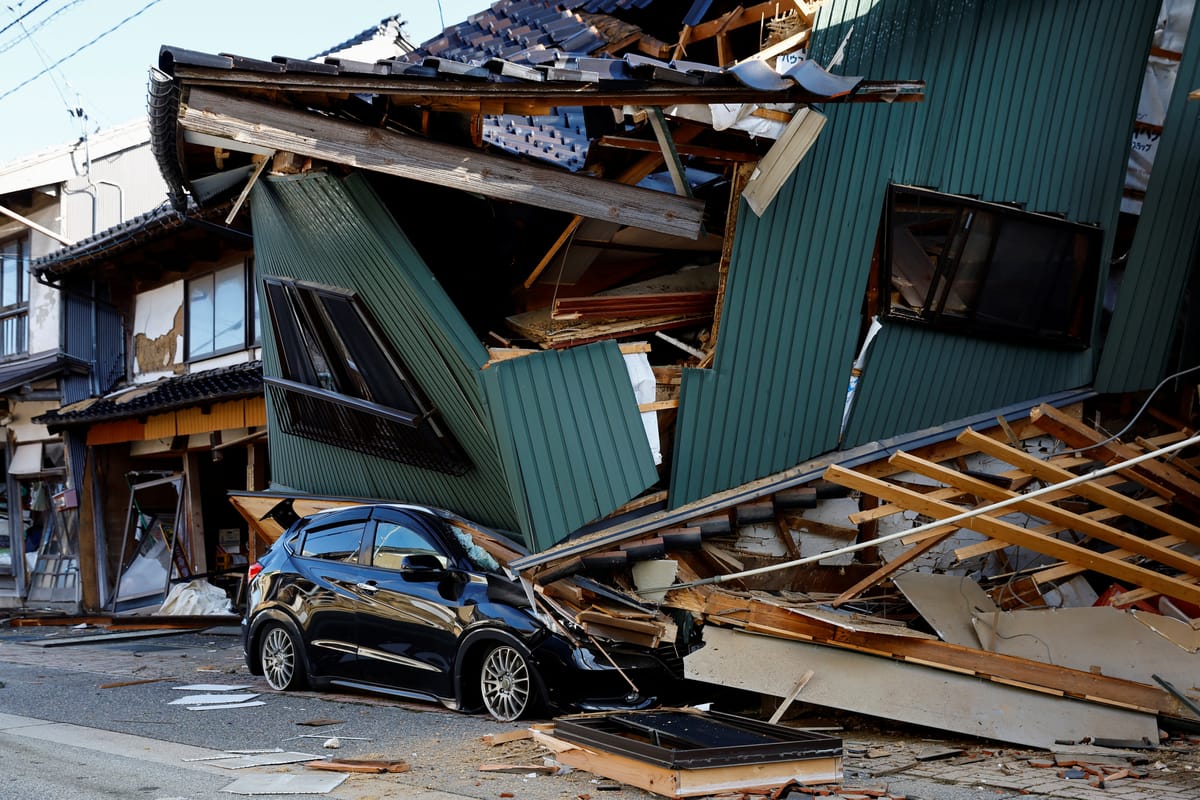
Nature, in its unfathomable might, has once again reminded us of our place within its vast, unpredictable realm. The recent earthquake that struck Japan, affecting parts of its western coastline, is a poignant reminder of our perpetual struggle against forces beyond our control. The earthquake, measuring 7.6 on the Richter scale, brought forth destruction and chaos, leaving in its wake collapsed buildings, fires, and the displacement of thousands. It also triggered a tsunami warning, rekindling memories of the tragic events of March 2011.
WATCH: Shoppers took cover and huddled together at a mall in Oyabe, Japan when a 7.6 magnitude earthquake hit Japan on New Year’s Day #fyp #japan #japanearthquake #huddle #earthquake #takecover #worldnews pic.twitter.com/d4LHWgmz14
— Saba (@mastkuri007) January 2, 2024
In moments such as these, when the earth beneath our feet betrays its steadiness, we are confronted with our own fragility and the impermanence of the world we inhabit. It is an encounter that calls for reflection, not only on the physical challenges it poses but also on the inner resilience it demands from us.
“We suffer more often in imagination than in reality,”
As a Stoic, I am guided by the principle that while we cannot control external events, we can control our reactions to them. This doctrine, while simple in its essence, is profound in its application, especially in times of crisis. “We suffer more often in imagination than in reality,” I have written, and this wisdom holds true in the face of natural disasters. The fear and anxiety that grip us can be more paralyzing than the events themselves. It is in mastering our internal state that we find our true strength.
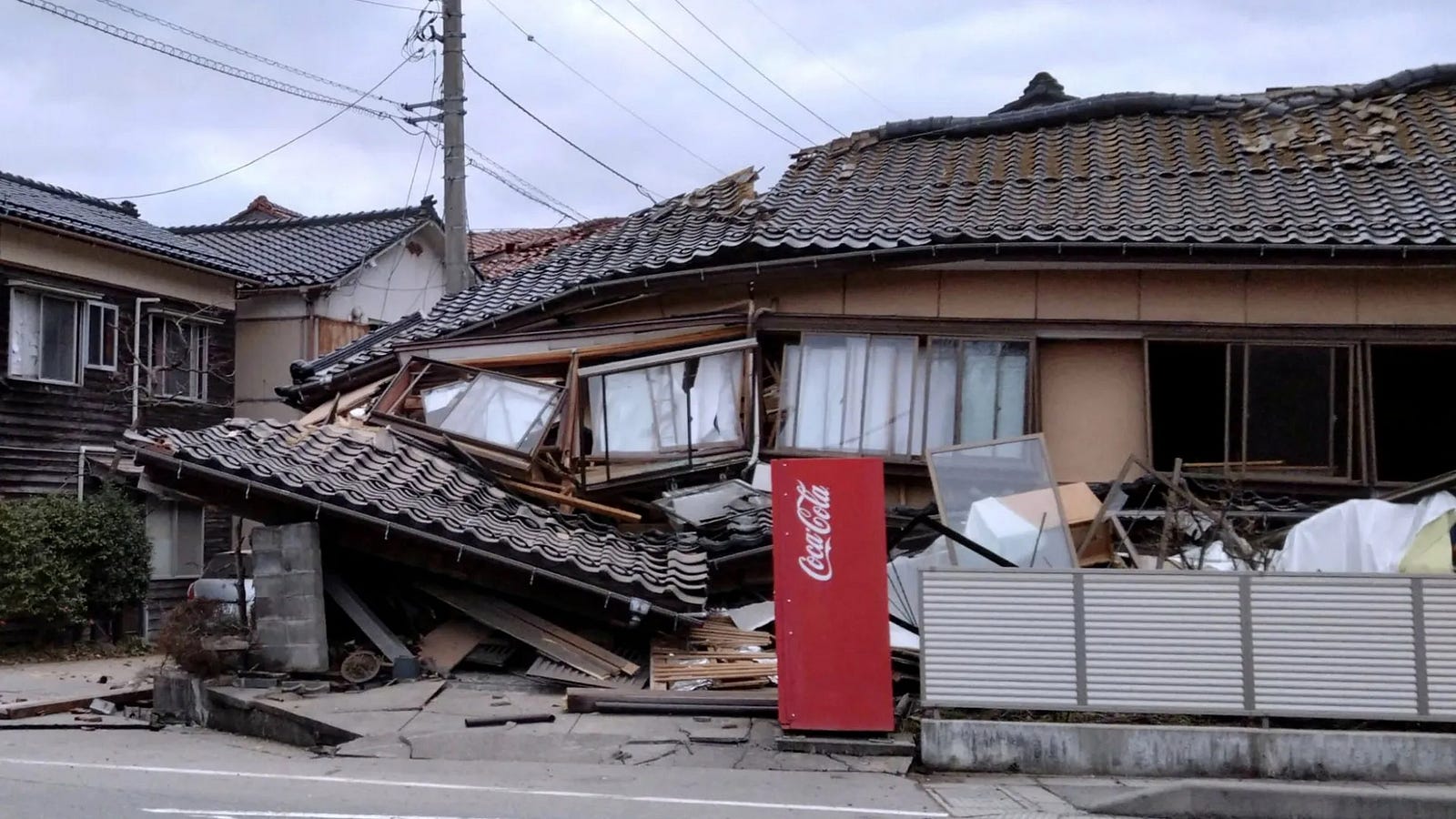
In the aftermath of the earthquake, the resilience of the Japanese people is a testament to their preparedness and stoic resolve. Japan, a nation well-versed in the language of earthquakes and tsunami warnings, has over the years honed a response system that is steeped as much in practical readiness as it is in a philosophical acceptance of nature’s whims. Their buildings, designed to withstand seismic shocks, are but one aspect of their preparedness; the greater part lies in the mental fortitude of the people.
Catastrophes such as these serve as stark reminders of the brevity and unpredictability of life.
The stoic response to such calamities is not one of resignation but of active engagement and prudent action. As Seneca said, “Luck is what happens when preparation meets opportunity.” The Japanese response, from the evacuation of citizens following the tsunami warning to the swift mobilization of emergency services, embodies this maxim. It is a reminder that while we cannot predict the caprices of nature, we can prepare for them.
This preparation, however, must not be confined to physical measures alone. The cultivation of a stoic mindset, one that embraces the reality of our existence within a larger, often tumultuous, natural world, is crucial. It involves accepting that suffering is part of life and that our strength lies in facing it with composure and dignity.
As we look upon the ruins and the upheaval caused by the earthquake, it is also a moment to reflect on our own lives. In our daily preoccupations, we often forget the fragility of our existence. Catastrophes such as these serve as stark reminders of the brevity and unpredictability of life. They should inspire us not towards fear but towards a greater appreciation of each moment we are given.
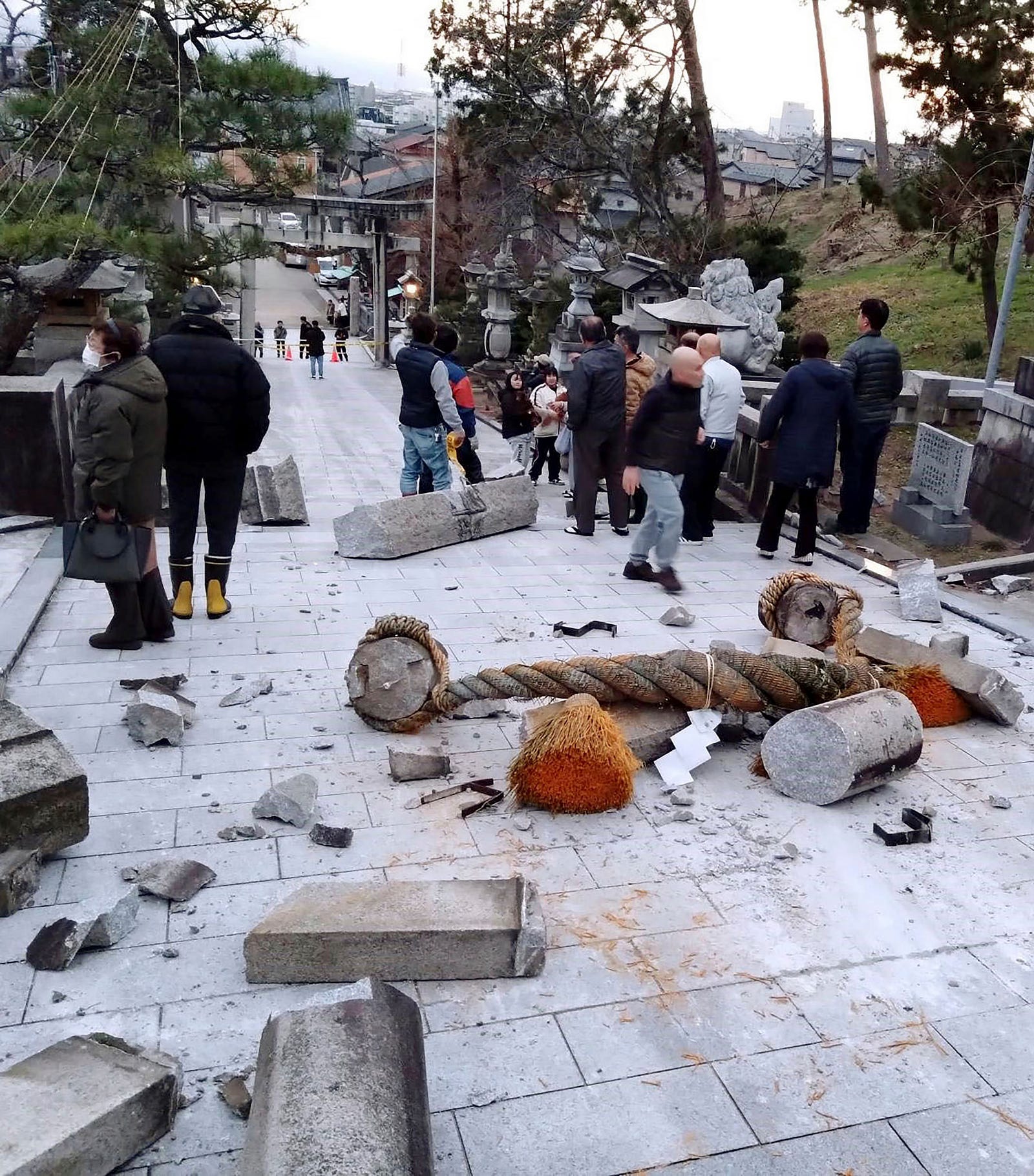
Moreover, these events call for a collective response, a reminder of our shared humanity. In the face of such disasters, our petty differences fade into insignificance. The global outpouring of support and solidarity for Japan underscores the interconnectedness of our world. It is a demonstration of what I have often emphasized: that we are parts of a larger whole, and it is in our nature to help one another.
In conclusion, the recent earthquake in Japan, while a display of nature’s unbridled power, also serves as a canvas for human resilience, preparation, and solidarity. As we navigate through the aftermath, let us be guided by stoic principles: embracing what we cannot control, preparing for what we can, and finding strength in our collective humanity. In doing so, we not only rebuild what has been lost but also fortify our spirits against the unpredictability of our existence. For, as I have said, “True happiness is… to enjoy the present, without anxious dependence upon the future.”
The recent earthquake in Japan serves as a solemn reminder of the fleeting nature of life and the unpredictable wrath of nature.
The recent earthquake in Japan serves as a solemn reminder of the fleeting nature of life and the unpredictable wrath of nature. As we witness the aftermath of this calamity, our thoughts naturally turn towards those affected, their plight a stark manifestation of human vulnerability in the face of natural forces. The Stoic philosophy, which I have long espoused, offers not just solace but guidance in such times of trial.
石川・震度7の地震 気象庁「令和6年能登半島地震」と命名
— シルバーブレット🌈Re:ゼロから始める異世界生活 (@Monkey_GOD_tk) January 1, 2024
おいっ‼️気象庁‼️名前付けてる余裕あんのかよ💢
被災地の方々に失礼だ‼️
人口地震だとかインプ稼ぎとか夜ふかしとかどうでもいい‼️
東日本大震災の時の事思いだせ💢#地震の被害 #震度7の地震 #地震情報 #地震速報
pic.twitter.com/nTQZmgb4A0
In confronting the terror and destruction wrought by such natural disasters, one is reminded of the Stoic principle of understanding what is within our control and what is not. As I have often said, “You have power over your mind — not outside events. Realize this, and you will find strength.” The earthquake and subsequent tsunami warning, unpredictable and unavoidable, fall outside the realm of human control. Yet, our response to these events, our resilience and our compassion, are firmly within our grasp.
“You have power over your mind — not outside events. Realize this, and you will find strength.”
It is in moments of crisis that the true nature of individuals and societies is revealed. The earthquake in Japan, much like the one that struck in 2011, has shown the remarkable resilience and preparedness of the Japanese people. Their response, swift and systematic, demonstrates a deep-rooted understanding of the transitory nature of existence and the importance of preparedness. This preparedness extends beyond mere physical measures; it is rooted in a collective mindset that is both pragmatic and profoundly Stoic.
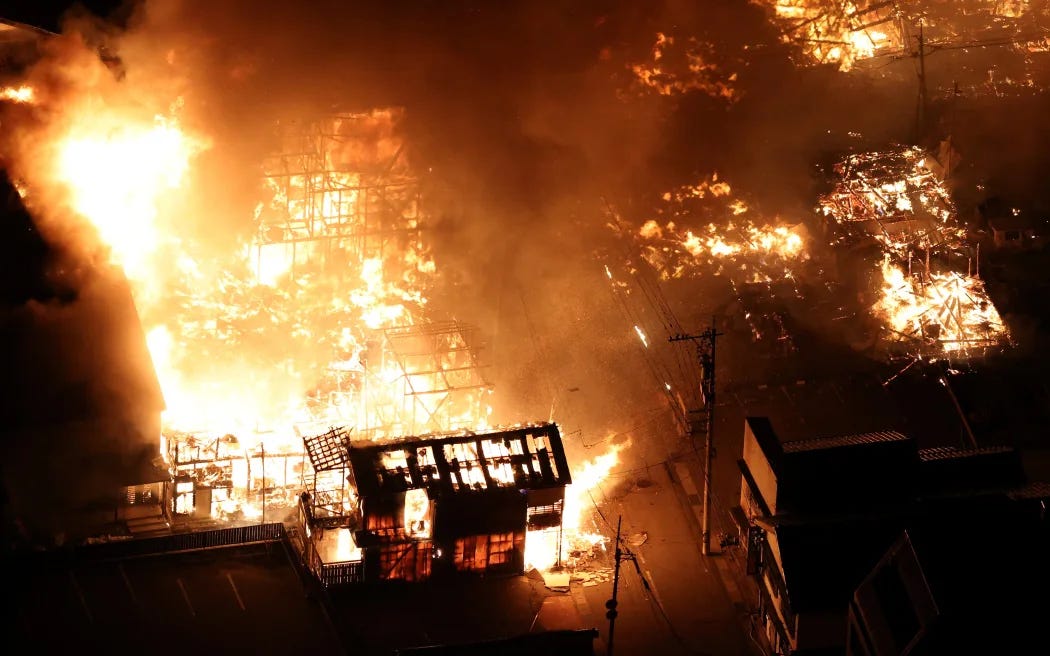
The images of destruction and despair, of homes reduced to rubble and communities in turmoil, are undoubtedly heart-wrenching. Yet, within this landscape of loss, there lies a powerful testament to human endurance and the capacity for recovery. The Stoic philosophy teaches us to confront adversity with a balanced mind, to maintain our composure in the face of hardship, and to find within ourselves the resilience to overcome. “The greatest remedy for anger is delay,” I have advised, suggesting a pause to reflect and respond with reason rather than emotion.
In Japan’s response to the earthquake, we see the embodiment of these Stoic virtues. There is a deliberate and thoughtful approach to rescue and recovery efforts, a measured response to the overwhelming chaos. This approach is not merely a matter of practical necessity but a reflection of a philosophical stance that values steadiness of mind and action in the face of adversity.
Furthermore, the earthquake reminds us of the impermanence of our material world. In my writings, I have often emphasized the transient nature of worldly possessions, admonishing, “It is not the man who has too little, but the man who craves more, that is poor.” The loss of property and possessions, while undoubtedly tragic, also offers a poignant reminder of the fleeting nature of material wealth. It is in our character, our virtues, and our actions that true richness lies.
As we stand in solidarity with those affected, let us draw upon the Stoic principles of resilience, preparedness, and collective responsibility.
The global reaction to the disaster in Japan also reflects a Stoic understanding of our interconnectedness and mutual responsibility. The outpouring of support and aid from around the world is a manifestation of our shared humanity, a recognition that we are all part of a larger community. As Stoics, we understand that “Every person must do his part towards the common good.” In extending help and sympathy to those affected, we are not only fulfilling a moral obligation but also reinforcing the bonds that unite us as human beings.
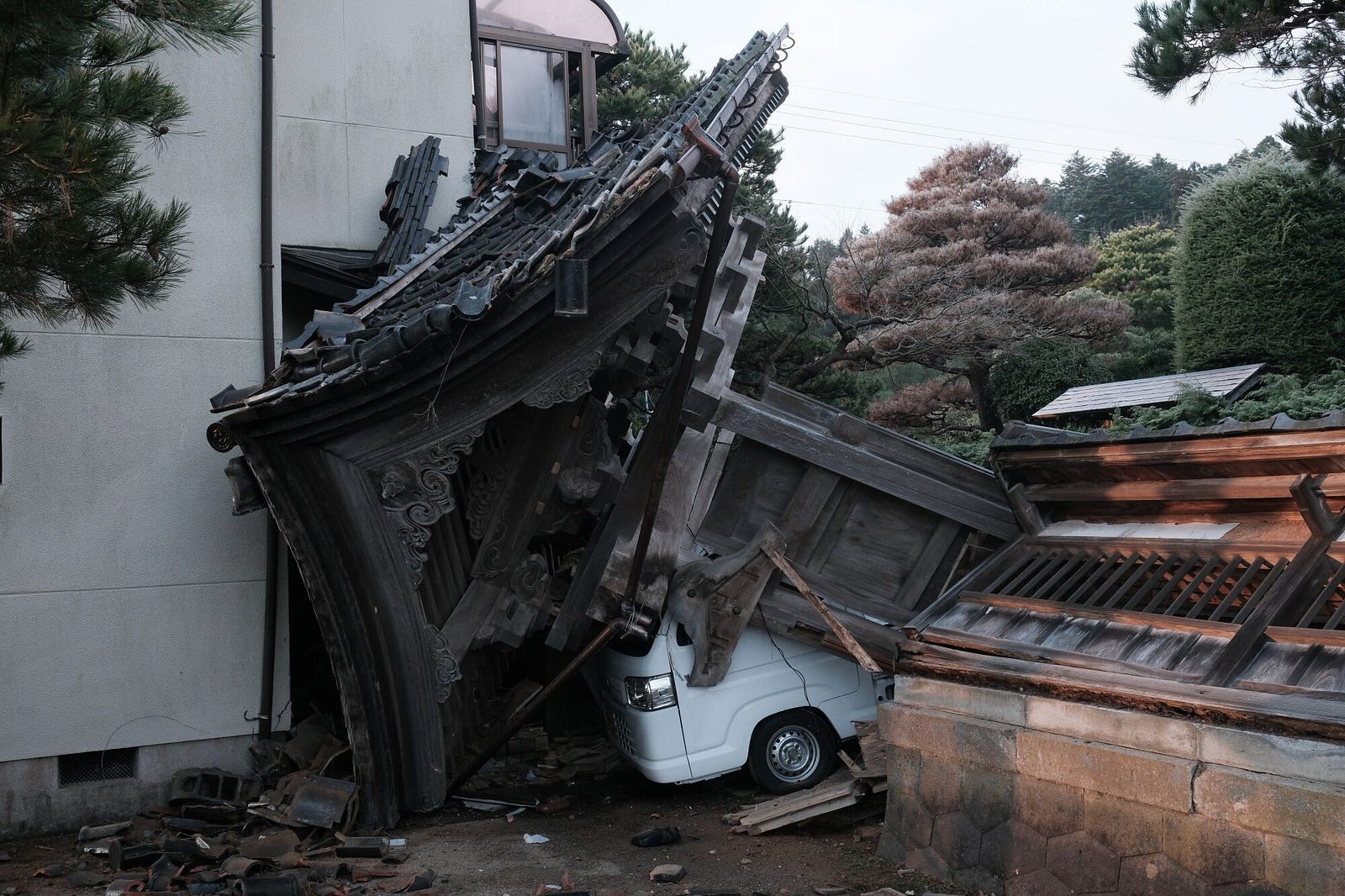
In these trying times, as we reflect on the devastation brought by the earthquake and the tsunami warning, let us also recognize the opportunity it presents for growth, both personal and collective. It is a chance to cultivate our inner strength, to demonstrate our resilience, and to reaffirm our commitment to each other. As we rebuild and recover, let us do so with the understanding that our greatest strengths lie not in our ability to prevent such tragedies but in our capacity to respond to them with courage, compassion, and unity.
The earthquake and subsequent tsunami warning in Japan, while a stark reminder of our vulnerability, also serve as a catalyst for demonstrating the strength of the human spirit. As we stand in solidarity with those affected, let us draw upon the Stoic principles of resilience, preparedness, and collective responsibility. In doing so, we not only aid in the recovery efforts but also reinforce our own inner fortitude against the unpredictable challenges of life.
For, as I have counseled, “He who fears death will never do anything worth of a man who is alive.”


